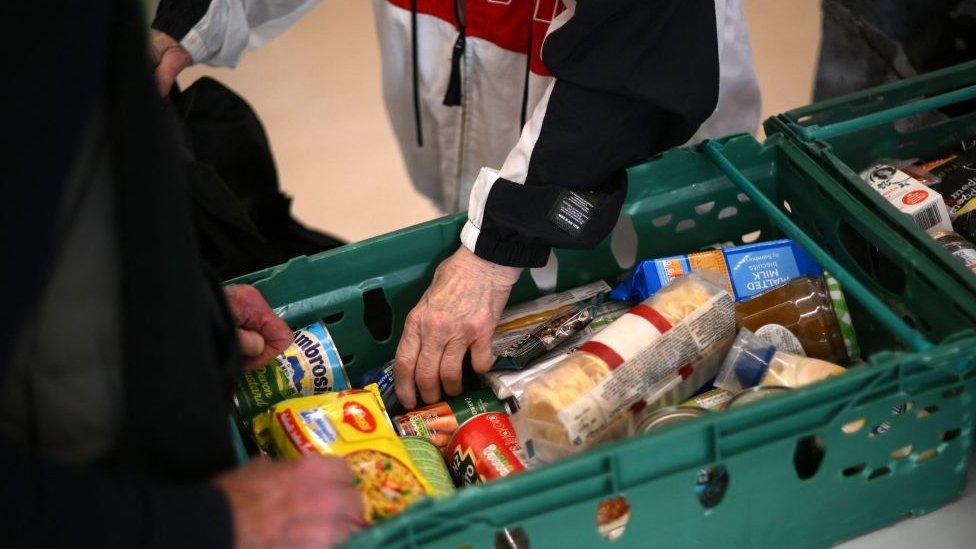London families struggling to buy food and pay bills - charity
- Published
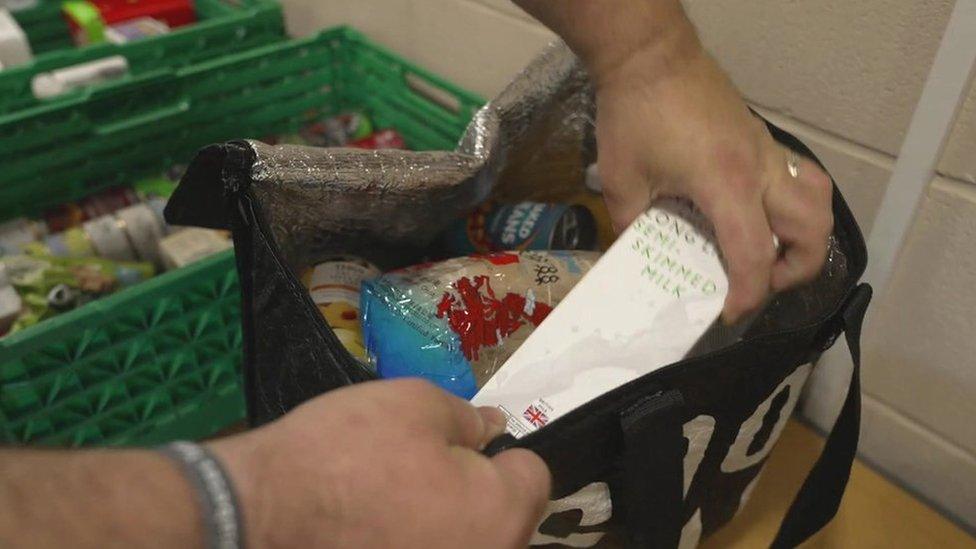
The Trussell Trust says Londoners on Universal Credit are more likely to skip meals than some others in the UK
More than half of working families on Universal Credit (UC) in London say they ran out of food and couldn't afford to buy more in the past month, according to the Trussell Trust.
Its analysis of YouGov data also suggests 31% have not been able to afford to make essential journeys including commuting and the school run.
A further 29% also struggled to heat their homes in the past six months.
The government said it was committed to helping households.
The Trussell Trust analysed data from two YouGov surveys of 544 Londoners, including 158 households receiving UC. Its analysis indicated that compared to those in the UK who aren't on benefits, people claiming UC in the capital were more likely to skip meals (39% versus 11%) or be unable to afford toiletries (18% versus 5%).
Among disabled households in London on UC, 33% have forgone essential dental treatment because they can't afford it, and 16% have gone without prescriptions, pain relief or over-the-counter medication because they didn't have enough money.
'I had no choice'
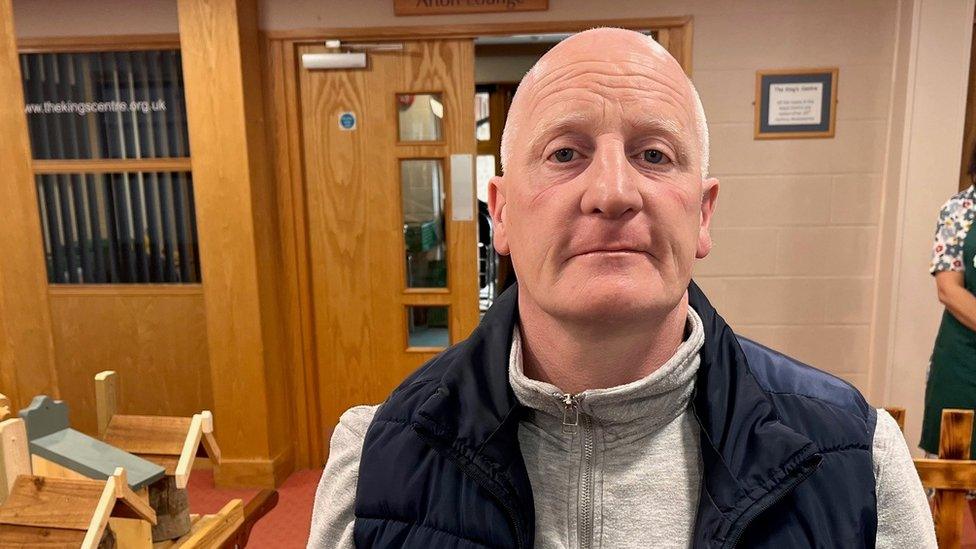
Gary Woodcock said: "I don't know how people live on [UC] to be fair. But we have to survive"
Gary Woodcock, who worked in the prison service for 17 years before he suffered a spinal injury, has been on UC for the past seven months and has been using Kingston Foodbank to support his family of five because "it's not enough to live on".
"The cost of living has gone sky high - milk, bread butter, your mortgage rates have gone up, your electricity and gas have gone sky high," Mr Woodcock said.
He added if it weren't for the foodbank he would be "in turmoil - getting into debt, borrowing money off family to survive", and said he understood why people on UC were still going without basics like food and toiletries.
"You get one shower gel, that's got to last for a week between five people. It's not going to last, is it?
"I know shower gel's cheap to come by, but it's still money you have to find to buy things. Even tablets for the washing machine are not cheap."
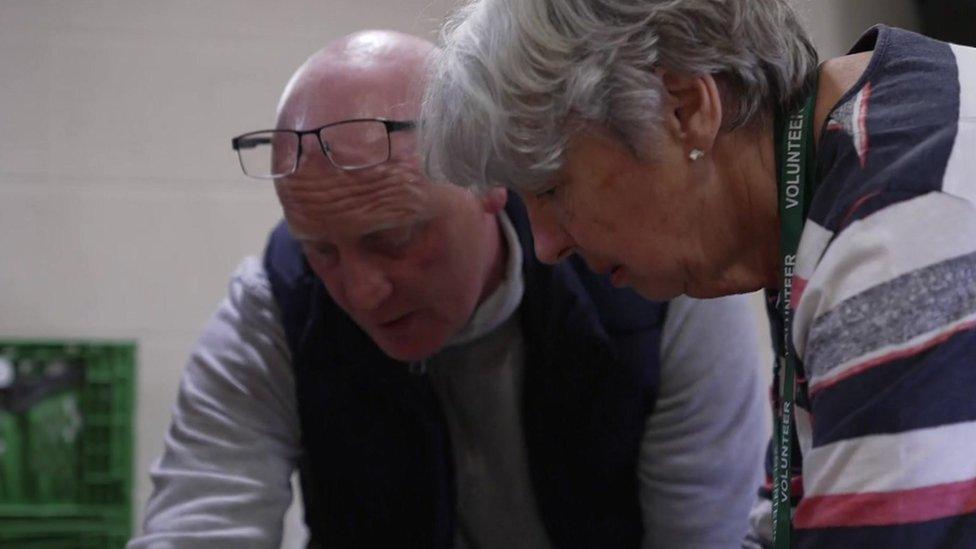
Kingston Foodbank's director says the money UC recipients get "isn't enough to cover the basic essentials"
The foodbank, which operates from the King's Centre in Chessington, south-west London, provides everything from basics like milk, pasta and cereal to toilet rolls and detergent to people in need.
Ian Jacobs, the director of the foodbank, said the team was seeing "more and more people coming through the doors" and was expecting this number to increase "as winter approaches".
"The majority of people we support are in receipt of Universal Credit, including many who work - like nurses, teaching assistants and carers - but the money they receive simply isn't enough to cover the basic essentials we all need to survive," he said.
Emma Revie, chief executive at the Trussell Trust, said: "It isn't right that so many people are struggling to put food on the table or cover the costs of travelling to work. "The chancellor must act now to protect people from further harm this winter.
"At the very least, this means confirming his commitment to bring benefits in line with inflation when he makes his Autumn Statement in November, and making debt deductions more affordable."
A government spokesperson said: "We know that high inflation is worrying for families and businesses, which is why halving it this year is our top priority.
"In the meantime, we are helping households with one of the largest support packages in Europe - including benefit and pensions increases of over 10% from April, direct cash payments to the most vulnerable and a record cash increase to the National Minimum Wage."

Follow BBC London on Facebook, external, Twitter , externaland Instagram, external. Send your story ideas to hellobbclondon@bbc.co.uk, external
Related topics
- Published5 June 2023

- Published26 January 2023
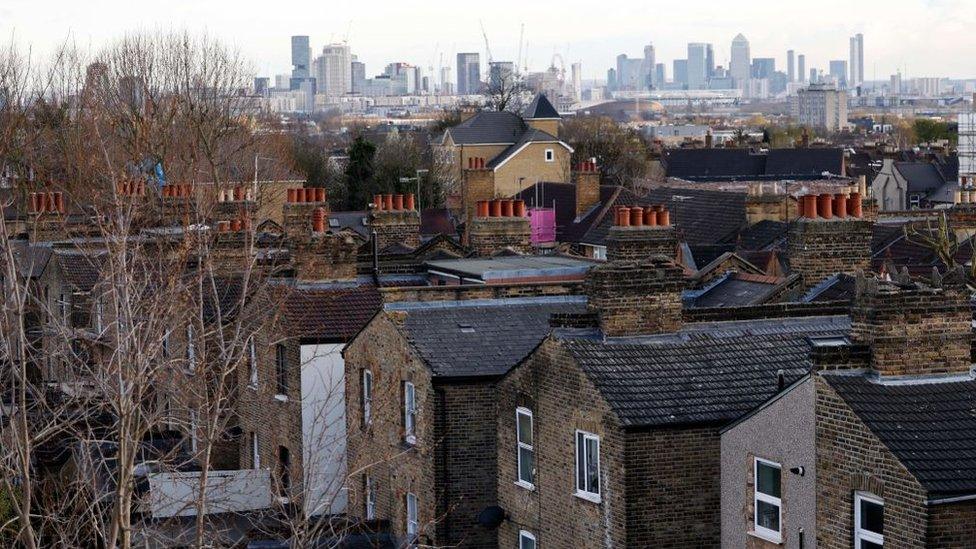
- Published18 January 2023
